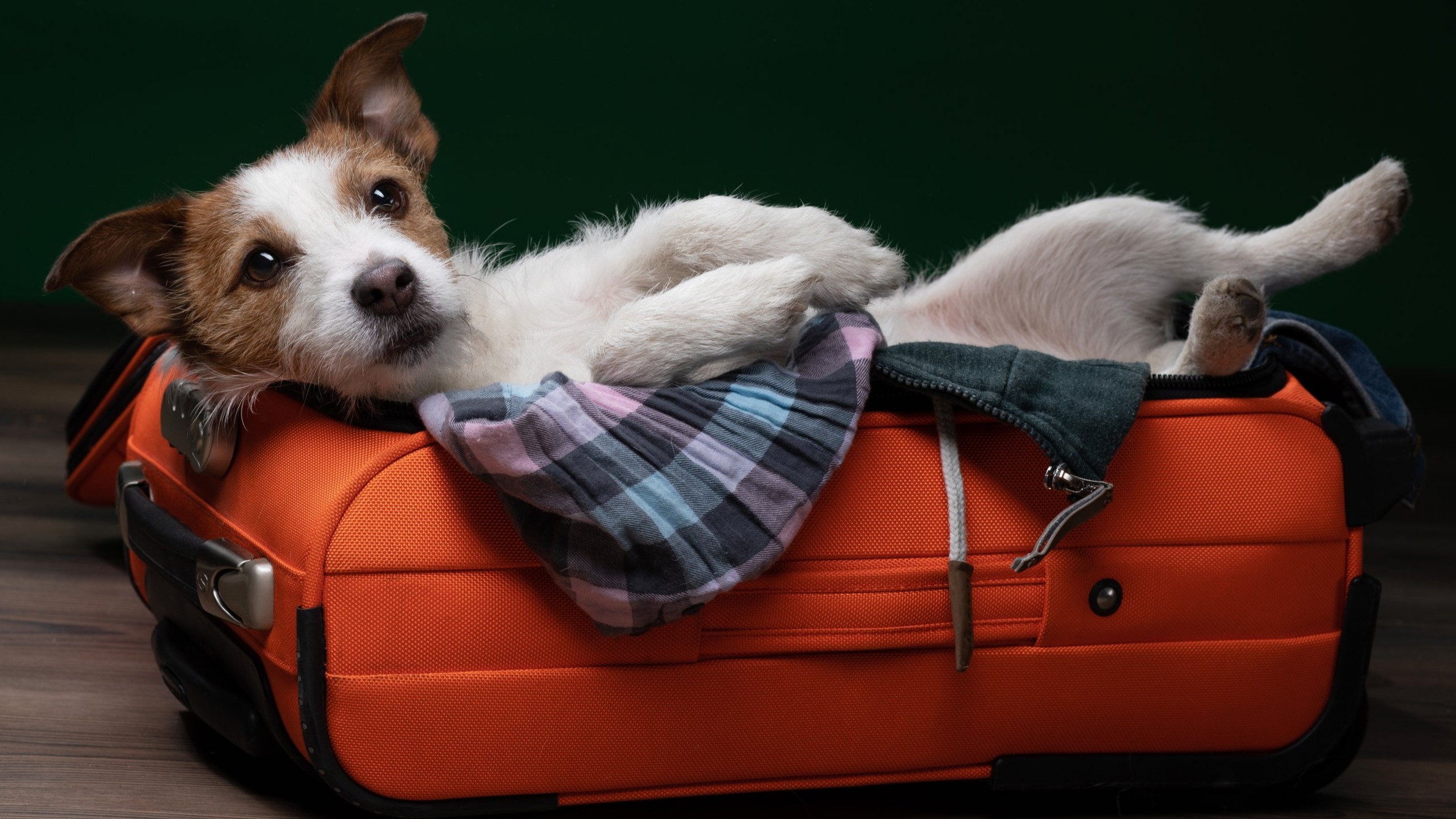
Main St. Veterinary Hospital greatly appreciates you confidence in our hospital to help facilitate your upcoming pet travel plan. Each country, state, and Hawaii have their own pet travel requirements and forms that need to be completed and submitted (in addition to) the USDA requirements.
It is imperative that you plan ahead. Meeting country and state requirements can take up to a year depending on the destination. This process cannot be rushed or done at the last minute.
What we do:
Main St. Veterinary Hospital will facilitate all of the veterinary services that you need for travel such as:
- Updating vaccinations
-
FAVN Rabies Titer blood work and paperwork and/or other required lab testing
-
Placing International Microchip
-
Parasite preventative application and/or administration
-
Health certificate exams with completion of health certificate
-
USDA Endorsed U.S. Issued Rabies Certificates
-
Other veterinary services necessary
What you do:
As the pet owner and traveler, you are ultimately responsible for thoroughly researching all restrictions and requirements of you destination.
-
Plan far in advance!
-
Check your airline’s and destination’s pet travel restrictions and requirements which often differ. Don't forget to check travel crate size and weight limits
-
Check our website resources below for specific pet entry requirements by destination
-
Check the requirements for RE-ENTRY to the USA on the CDC’s website
-
Consider a professional shipping company for complicated international travel such as Australia
Website Resources:
USDA APHIS | APHIS Pet Travel
State of Hawaii Animal Industry Division
CDC Import Regulations
The International Pet and Travel Association has a list of accredited shipping companies.
As the owner, your responsibilities include but are not limited to:
-
Reading and submitting the Pet Travel Form
-
Submitting the Interstate Travel Questionnaire or International Travel Questionnaire as soon as possible
-
Researching and understanding the requirements needed for your pet to travel to your destination
-
Checking travel requirements frequently as the can change without notice
-
Communicating with us about the services your pet needs and when they need the services done (Ex: Some countries require a microchip implanted before a Rabies is given)
-
Determining logistics, timelines, and deadlines including (but not limited to):
-
Timing of flights since most airlines and countries require the the health examination and USDA endorsement to be done within 10 days of the arrival date
-
Timing of health certificate exam, required testing if needed, required vaccinations, and/or treatments
-
Timing of paperwork submission to the USDA (Rabies Certificates, Health Certificates, Import Forms, etc.)
-
Completing import forms or other specific forms if required by the destination, getting them notarized if required, and SUBMITTED on time
-
Obtaining USDA endorsement on certificates and forms within the time frame required
-
USDA Endorsement on certificates and forms within the time frame required
-
For Hawaii, in addition to other requirements:
-
Reading and understanding the State of Hawaii Department of Agriculture's pet travel requirements
-
Coordinating with Hawaii's Department of Agriculture Regulations
-
Making sure you read, understand, and use the checklist for a 5 day or less quarantine
For Interstate Travel:
-
Each state has their own requirements to protect the local animal population and to provide a safe, healthy environment for animals coming in to their state
-
Please visit the USDA Pet Travel website for state specific requirements
-
Check with your mode of transportation's (airline, train, bus, etc.) as they may have requirements and restrictions that differ from your destination
Health Certificates and travel forms are legal documents. Please make sure to review and follow all guidelines and requirements for a smooth transition to your new home of vacation destination. Any changes made after a health certificate is electronically sent for USDA approval will require MSVH to require MSVH to restart the health certificate process. Restarting the process may cause delays and will incur additional expenses.

